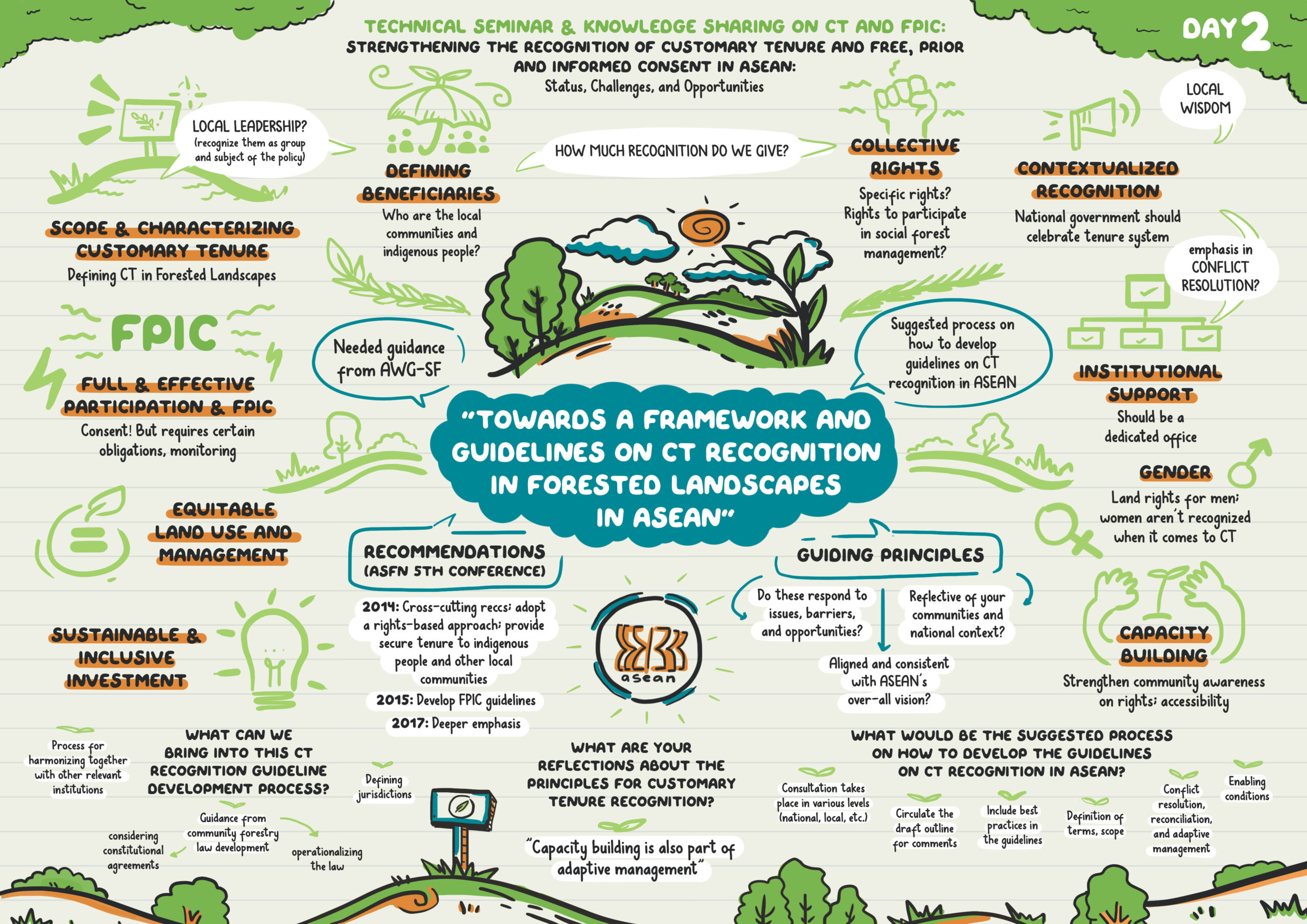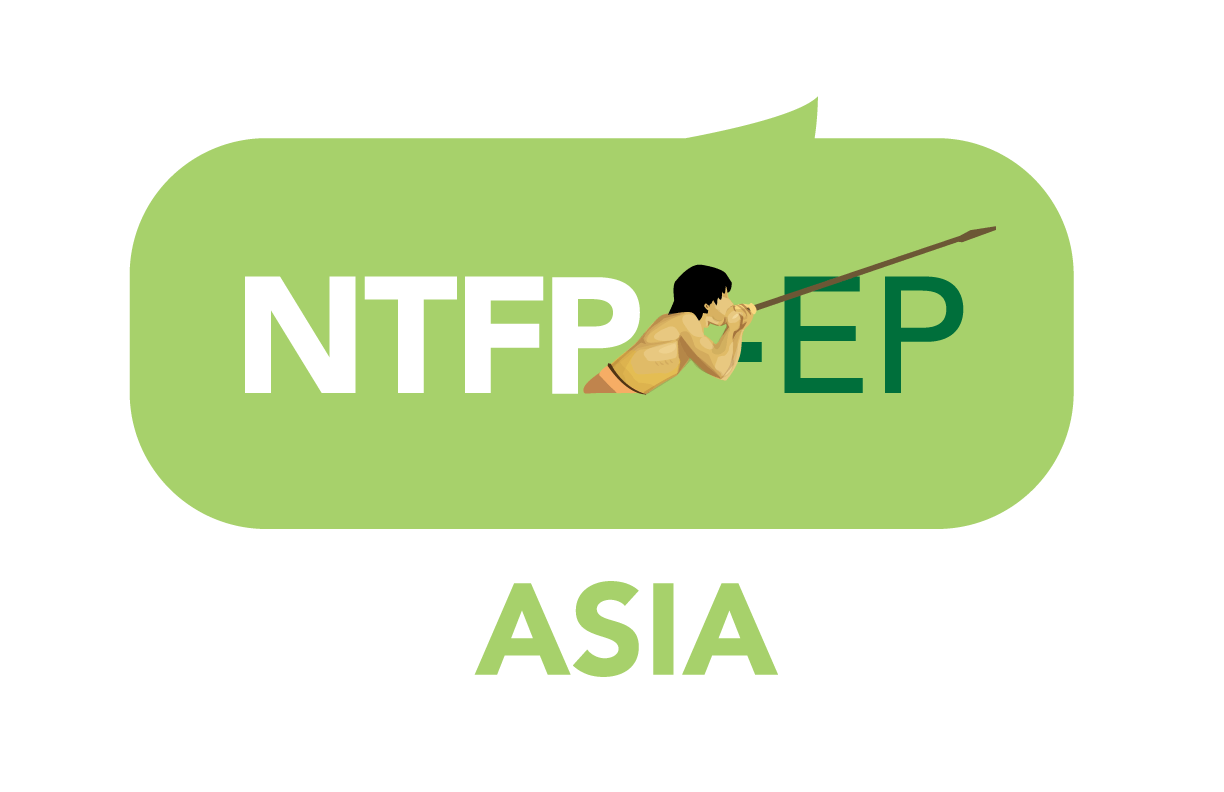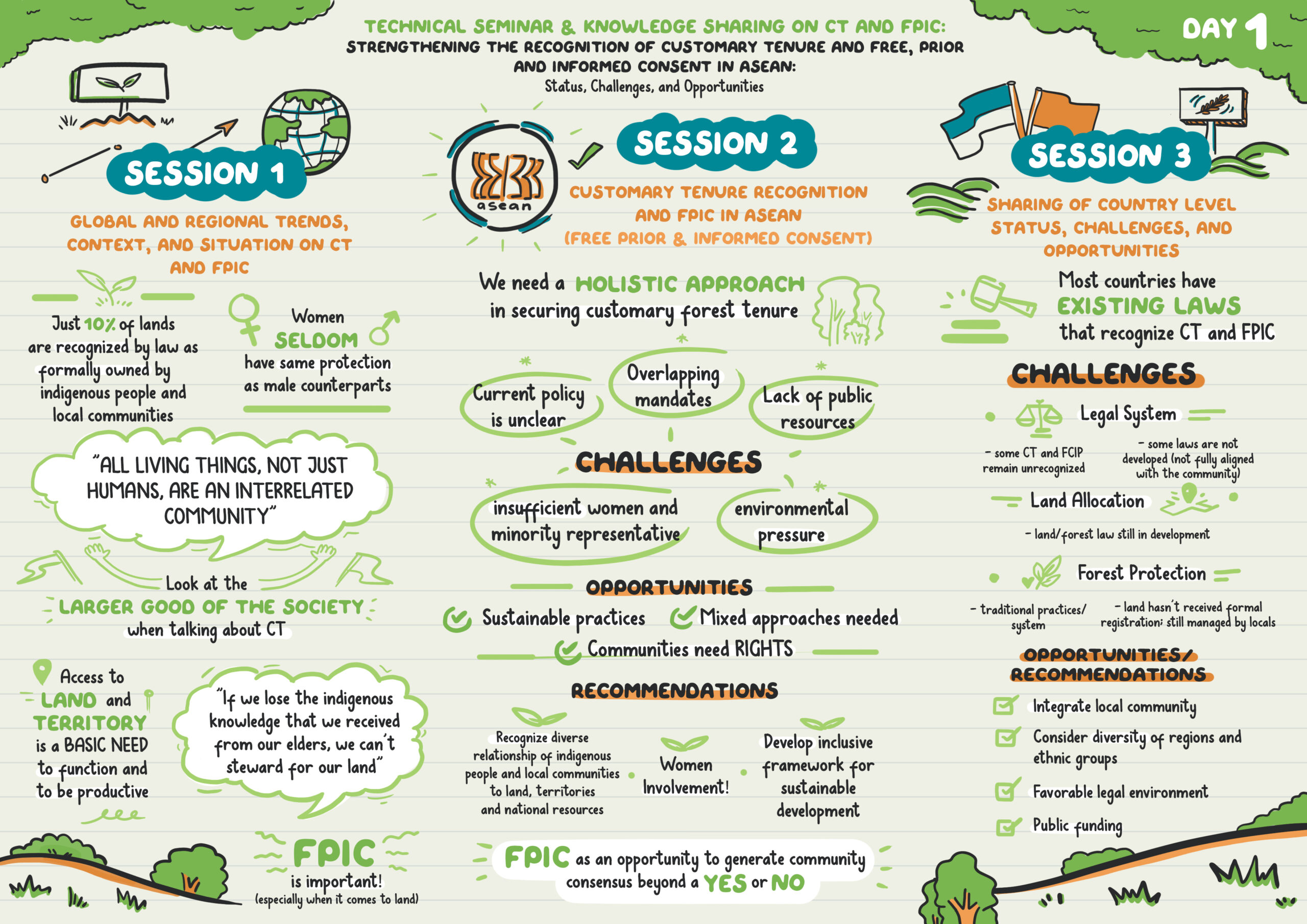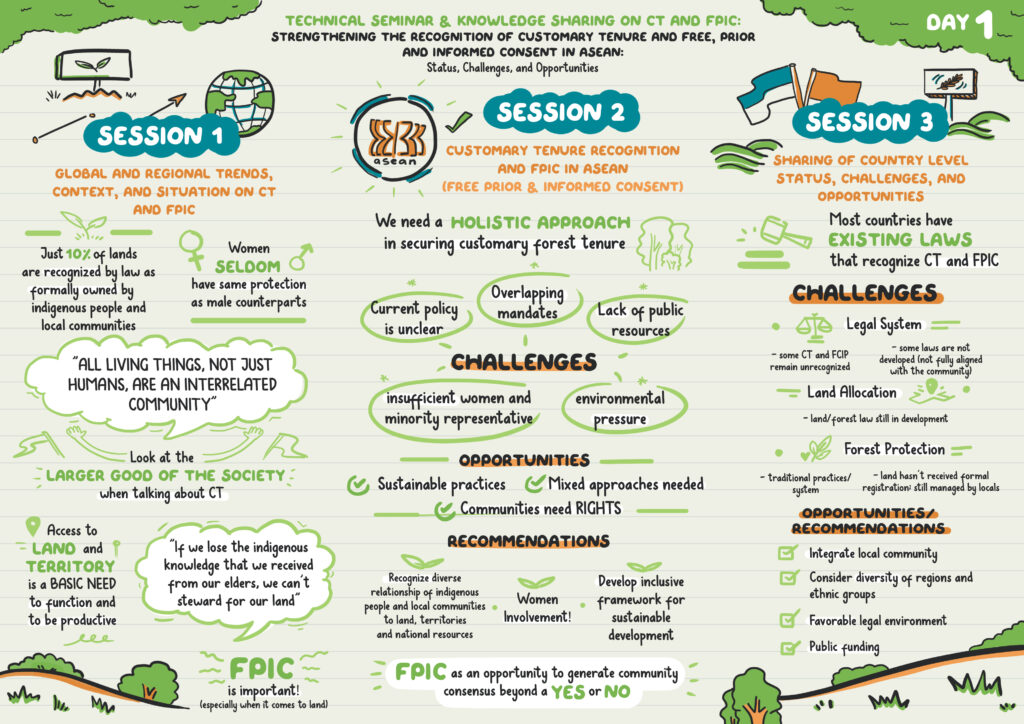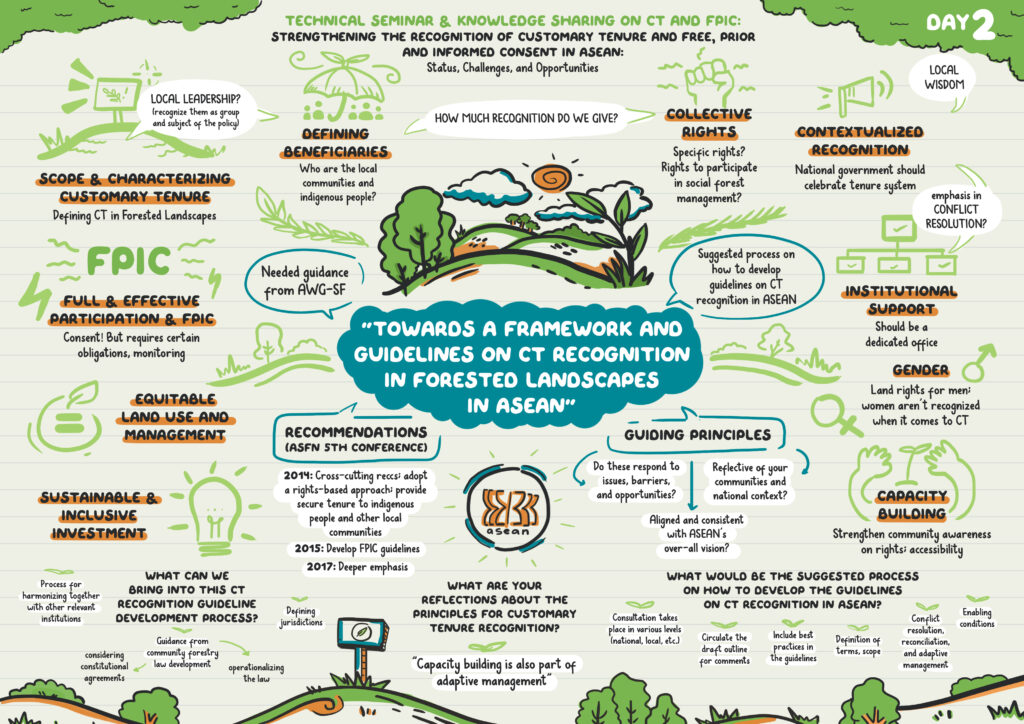
The second day of the technical seminar and knowledge sharing on Customary Tenure (CT) and Free, Prior, and Informed Consent (FPIC) provided an opportunity for the ASEAN Member States of the ASEAN Working Group on Social Forestry (AWG-SF) to reflect on the key messages and learning from the rich discussion in the previous day’s session, and to start the discussion on key elements to be included in the outline of the proposed ASEAN Guidelines on CT Recognition in Forested Landscapes in ASEAN.
Atty. Edna Maguigad, NTFP-EP’s CT and FPIC Regional Researcher, presented the discussion paper and zero draft of the guidelines during the first part of the discussion.
For the second part of the session, participants discussed the approach to develop a framework and guidelines on customary tenure recognition in forested landscapes—particularly setting the objective, pinning down its nature, identifying its intended users, determining the process to be undertaken, and finally, the guiding principles on customary tenure recognition in forested landscapes.
The following questions were presented to guide the group in reviewing the principles:
- Do these principles respond to the issues, barriers and opportunities identified during the meeting?
- Are these principles reflective of your community and national context?
- Are these principles aligned and consistent with the AWG-SF, ASEAN Food, Agriculture and Forestry, and overall ASEAN visions?

With guidance from the ASEAN Senior Officials on Forestry and in accordance with their strategic plan of action for ASEAN Cooperation in Forestry 2016-2025, the AWG-SF affirmed to put the development of the ASEAN Guidelines for CT recognition as a priority in their plan of action for 2021-2025.
“It is a super milestone to work for the development of the ASEAN Guidelines for Customary Forest Tenure Recognition,” said Dr. Dian Sukmajaya of the ASEAN Secretariat.
Sukmajaya added that the process has considered and ensured the ownership, seeing that ASEAN member states have actively participated and provided their significant and valuable input for the development of the guidelines.
As part of the continuing dialogue towards the development of the ASEAN Guidelines, the discussion continued in the regional learning exchange and policy dialogue “Linking Customary Tenure Recognition with Food Security, and Traditional Livelihoods in the ASEAN Region” held last December 1-3, 2021 hosted by the Asian Farmers Association for Sustainable Rural Development.
The technical seminar and knowledge sharing is organized by NTFP-EP Asia, in collaboration with the CSO Forum on Social Forestry in ASEAN, the ASEAN Working Group on Social Forestry, and the ASEAN Secretariat, with support from the Mekong Regional Land Governance Project and the Green Livelihoods Alliance.

